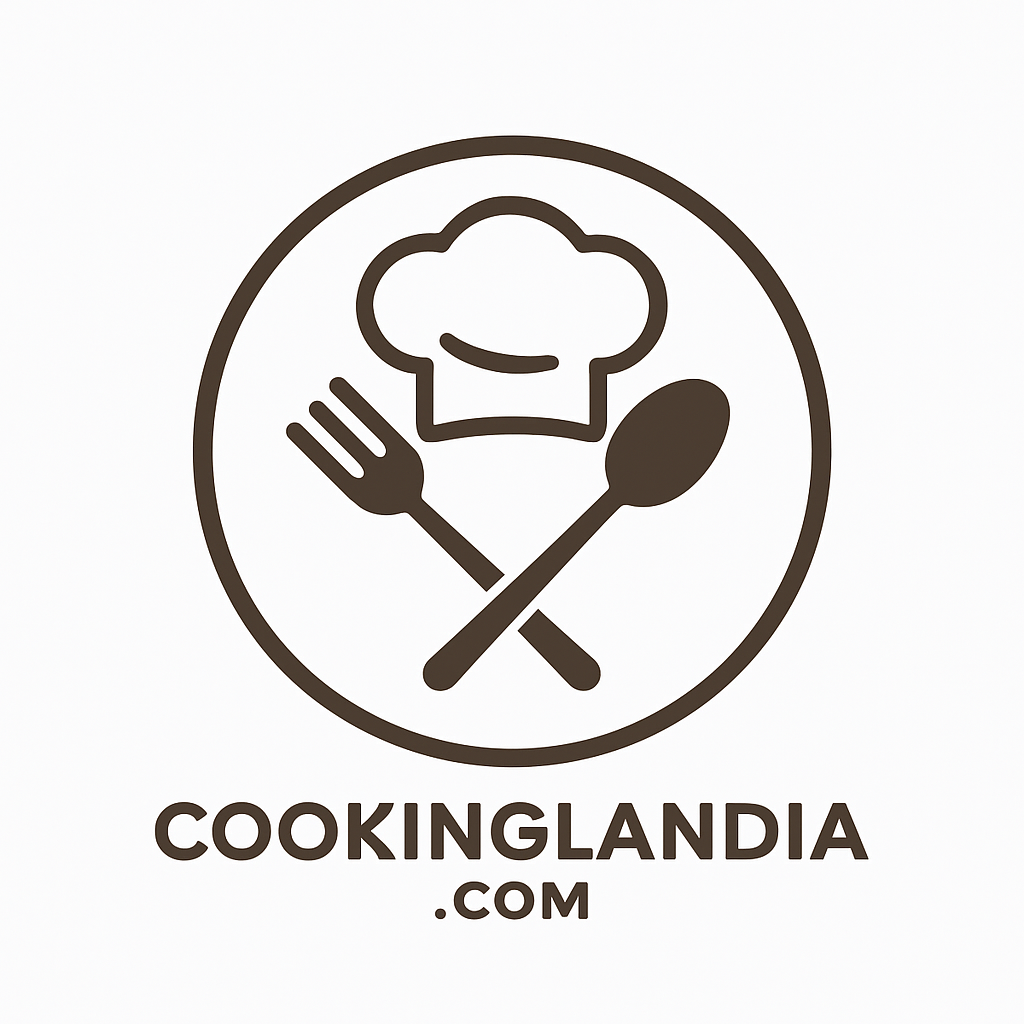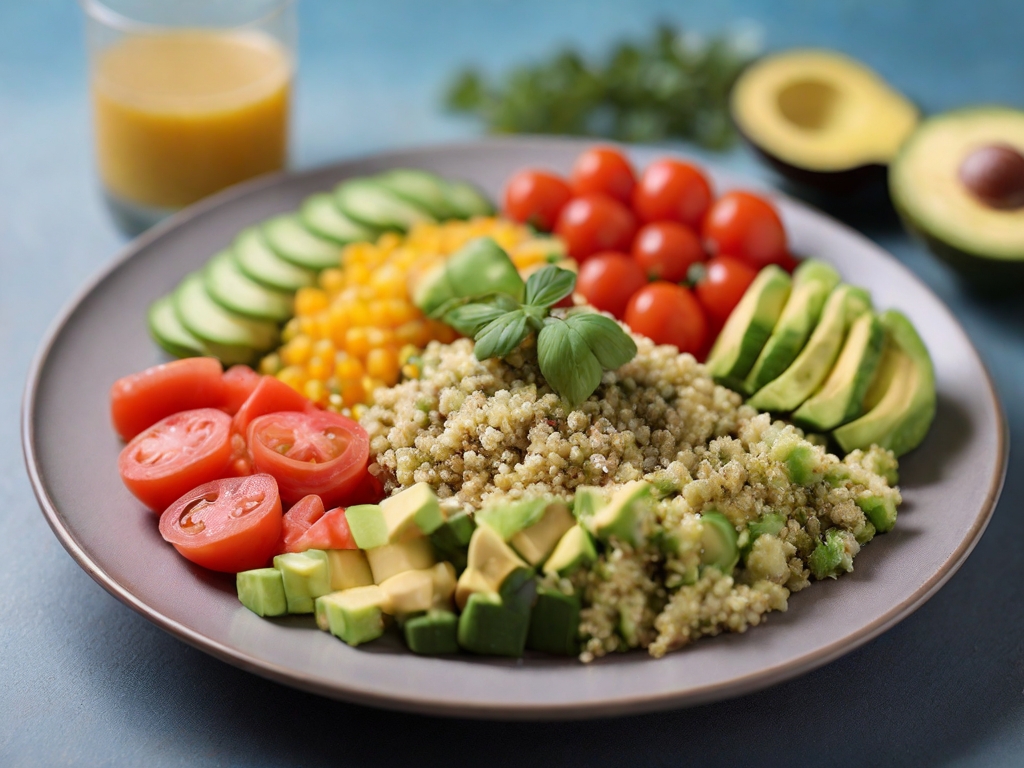In a world where food allergies are becoming increasingly common and health concerns are on the rise, allergen-free diets are becoming a popular dietary choice. These diets, which exclude foods that commonly trigger allergic reactions in some individuals, are not only necessary for those with known allergies but are also being adopted by people seeking to improve their overall health and well-being. However, following an allergen-free diet can be challenging, especially initially. In this article, we will explore in detail weekly menus for allergen-free diets, providing delicious recipes and nutritional strategies to help you enjoy a healthy and safe diet.
Understanding Allergen-Free Diets
Allergen-free diets are those that eliminate foods that commonly trigger allergic reactions in some people. Among the most common allergens are milk, eggs, wheat, soy, peanuts, tree nuts, fish, and shellfish. For those with food allergies, eliminating these foods is crucial to preventing potentially severe reactions and improving their quality of life.
Benefits of Allergen-Free Diets
In addition to avoiding allergic reactions, following an allergen-free diet can have several health benefits. Some of these benefits include:
1. Reduced inflammation:
Eliminating allergens from the diet can help reduce inflammation in the body, which can contribute to a variety of health issues, from joint pain to heart disease.
2. Improved digestive health:
For many people, food allergens can trigger gastrointestinal symptoms such as bloating, gas, and diarrhea. By eliminating these foods, it is possible to improve digestive health and reduce these symptoms.
3. Increased energy:
Allergen-free diets are often filled with nutritious whole foods rich in vitamins and minerals. This can help increase energy levels and combat fatigue.
4. Weight control:
By focusing on whole, natural foods rather than processed foods that often contain allergens, people following an allergen-free diet are more likely to maintain a healthy weight.
5. Improved skin health:
Food allergic reactions often manifest on the skin in the form of hives, eczema, or rashes. Eliminating allergens from the diet can help improve skin health and reduce these symptoms.
Planning Weekly Menus
The key to successfully following an allergen-free diet is careful meal planning. Here is an example of a weekly menu designed for an allergen-free diet, along with delicious and safe recipes for each meal.
Monday:
Breakfast: Gluten-free oatmeal bowl with fresh fruit and chia seeds.
Oatmeal is an excellent choice for breakfast on an allergen-free diet, as it is naturally gluten-free. Combine it with your favorite fruits, such as strawberries, bananas, or blueberries, and add some chia seeds for an extra boost of fiber and omega-3 fatty acids.
Lunch: Quinoa salad with roasted vegetables and lemon dressing.
Quinoa is an excellent source of protein and complex carbohydrates, making it an ideal base for a nutritious salad. Combine it with your favorite vegetables, such as bell peppers, zucchini, and eggplant, and dress with a homemade lemon dressing for a refreshing touch.
Dinner: Grilled chicken breast with grilled asparagus and mashed sweet potatoes.
Chicken breast is an excellent source of lean protein and is naturally allergen-free. Pair it with grilled asparagus, which is packed with fiber and antioxidants, and mashed sweet potatoes, which are a healthy and delicious alternative to regular potatoes.
Tuesday:
Breakfast: Spinach, banana, and almond milk smoothie.
Smoothies are an excellent way to start the day with a healthy dose of fruits and vegetables. This smoothie combines fresh spinach, ripe bananas, and creamy almond milk for a delicious and nutritious beverage.
Lunch: Dairy-free lentil soup with gluten-free bread.
Lentils are an excellent source of plant-based protein and are naturally allergen-free. This comforting soup combines lentils with fresh vegetables and aromatic herbs for a tasty and satisfying dish.
Dinner: Baked salmon with steamed broccoli and quinoa.
Salmon is an excellent source of omega-3 fatty acids, which are beneficial for heart and brain health. Pair it with steamed broccoli, which is packed with vitamins and minerals, and quinoa, which is an excellent source of protein and fiber.
Wednesday:
Breakfast: Avocado and tomato on gluten-free toast.
Avocado is an excellent source of healthy fats and is naturally allergen-free. Spread some ripe avocado on slices of gluten-free toast and top with fresh tomato slices for a quick and delicious breakfast.
Lunch: Chickpea salad with cucumber, tomato, and tahini dressing.
Chickpeas are an excellent source of protein and fiber and are naturally allergen-free. Combine them with fresh cucumber, ripe tomato, and a homemade tahini dressing for a delicious and nutritious salad.
Dinner: Gluten-free beef tacos with guacamole and fresh salsa.
Lean beef is an excellent source of protein and is naturally allergen-free. Fill gluten-free tortillas with cooked beef, homemade guacamole, and fresh salsa for a delicious and flavorful dinner.
Thursday:
Breakfast: Berry smoothie with coconut milk and spinach.
Berries are rich in antioxidants and vitamins and are naturally allergen-free. Combine them with creamy coconut milk and fresh spinach for a refreshing and nutritious smoothie.
Lunch: Dairy-free chicken salad with avocado and balsamic vinaigrette.
Chicken is an excellent source of lean protein and is naturally allergen-free. Pair it with ripe avocado, fresh tomato, and a homemade balsamic vinaigrette for a tasty and satisfying salad.
Dinner: Oven-baked fish with steamed asparagus and brown rice.
Fish is an excellent source of protein and omega-3 fatty acids and is naturally allergen-free. Serve it with steamed asparagus, which is packed with vitamins and minerals, and brown rice, which is an excellent source of complex carbohydrates and fiber.
Friday:
Breakfast: Gluten-free pancakes with honey and fresh fruit.
Gluten-free pancakes are an excellent option for a indulgent and allergen-free breakfast. Top your pancakes with golden honey and fresh fruit, such as strawberries, bananas, or blueberries, for a sweet and satisfying breakfast.
Lunch: Hummus and vegetable wrap with carrots and cucumbers.
Wraps are a quick and convenient lunch option that can be customized with a variety of healthy fillings. Spread a gluten-free wrap with creamy hummus and fill with grated carrots, sliced cucumbers, and fresh lettuce leaves for a delicious and nutritious lunch.
Dinner: Gluten-free rice pasta with marinara sauce and turkey meatballs.
Rice pasta is an excellent gluten-free alternative to traditional pasta and is perfect for this comforting dinner. Serve it with homemade marinara sauce and lean turkey meatballs for a delicious and satisfying dinner.
Tips for a Successful Allergen-Free Diet
To successfully follow an allergen-free diet, here are some helpful tips to keep in mind:
1. Read food labels:
It is important to always check food labels for potential hidden allergens. Many processed foods may contain traces of allergens, so be sure to carefully review the ingredient list.
2. Cook from scratch:
Preparing your own meals from scratch allows you to control the ingredients and avoid allergens. Additionally, cooking at home can be healthier and more satisfying than eating out.
3. Explore alternative ingredients:
Experiment with alternative ingredients to create delicious and nutritious meals. For example, you can use almond milk instead of cow’s milk or almond flour instead of wheat flour in your favorite recipes.
4. Consult a healthcare professional:
If you are unsure about which foods you can consume, consult a dietitian or nutritionist. These professionals can help you plan a balanced and safe diet that meets your nutritional needs.
5. Communicate your dietary needs:
When dining out or eating at someone else’s home, be sure to inform your hosts about your food allergies. This will allow them to take the necessary precautions when preparing your food and ensure your safety.
Conclusion
Following an allergen-free diet can be a rewarding and delicious experience. With careful planning and creative recipes, it is possible to enjoy nutritious and safe meals that meet your dietary needs. We hope this article has provided you with inspiration and resources to begin your journey towards a healthier and happier allergen-free diet. Enjoy your meals and a life free from food allergies!
Explore our e-shop and take your culinary experience to the next level! At Cooking Landia, we have carefully selected the finest kitchen utensils and products for you. From high-quality chef’s knives to durable cookware, and innovative culinary gadgets, you’ll find everything you need to equip your kitchen like a true professional. Discover our curated collection and choose the products that will make cooking even more exciting and efficient. Visit our e-shop now and turn every moment in the kitchen into an extraordinary experience! 🍳🔪🍴
More content
- Gastronomía egipcia: dieta y recetas ancestrales

- Comida Callejera en el Mundo: Historia y Platos Típicos

- Historia del Chocolate: De los Aztecas al Presente

- Culinary Globalization: Exploring 6 Iconic World Dishes
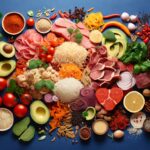
- Sustainable Dishes: Gastronomic Trends for a Greener Future

- The Most Impactful Gastronomic Trends Shaping the World

- Myths and Legends: The Magical Stories Behind Foods

- Symbolism of Food: The Meaning in Every Bite

- Iconic Dishes of Spanish Cuisine by Region
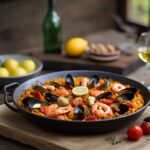
- Exploring Flavors: Top 10 Typical Dishes of Latin America
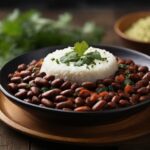
- Perfect Pairing: Wines and Dishes for Gastronomic Celebrations

- Title: Culinary Traditions in Festivals: Festive Flavors of the World

- Gastronomy and Folklore: Culinary Traditions and Local Myths

- Culinary Journey: Discovering Culinary Traditions from Different Cultures

- Healthy and Affordable Recipes: Eating Well Without Spending Much

- Healthy Breakfasts: 7 Nutritious Recipes for the Whole Week

- Probiotic Foods: How Do They Improve Your Digestive Health?

- Boost Your Immune System: The Best 10 Foods

- 6 Healthy Recipes for a Balanced and Delicious Diet
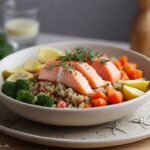
- 15 Foods to Maintain a Balanced and Nutritious Diet

- Menus for Allergen-Free Diets: The Best Recipes and Nutritional Strategies
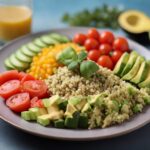
- Dietary Plans for Food Allergies: Top 10 Tips and Recommendations

- Low-Carb Diets: Top 10 Recommended Foods

- Low-Carb Diet: A Beginner’s Guide

- Easy Gluten-Free Recipes for Every Day of the Week
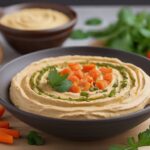
- Complete Guide to Gluten-Free Diets: Tips for Beginners
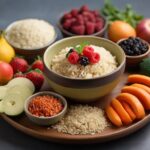
- Protein Sources in a Vegan Diet: What to Do?

- Vegetarianism for Beginners: Simple Steps to Adopt This Lifestyle

- Taste the Best of Africa: Top 5 Iconic Regional Recipes

- The Secrets of African Cuisine: Traditional Recipes and Flavors

- 10 Latin American Sweets: Tempting Dessert Adventures Await

- Secrets of Latin American Cuisine: Traditional and Authentic Recipes You Must Try
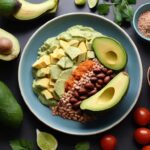
- Taste of the Mediterranean: 5 Key Dishes

- Simple Mediterranean Cooking for Beginners: Impress Your Guests!

- Homemade Sushi: Simple Steps to Prepare Your Favorite Rolls

- Secrets of Asian Cuisine: Discovering 8 Traditional Techniques

- Innovation in Cuisine: Gourmet Products in Traditional Recipes
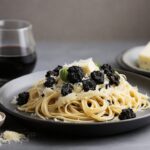
- The 10 Most Exclusive Gourmet Products You Must Try

- White Fish vs. Blue Fish: Which is Better for Your Health?

- The Secrets of Perfect Seafood Cooking: Kitchen Tricks
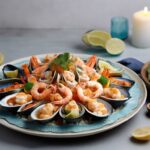
- How to Choose the Best Poultry for Your Recipes

- From Farm to Table: How to Select Quality Meat
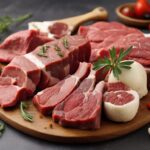
- Complete Guide: Enhance Your Dishes with Fresh Herbs
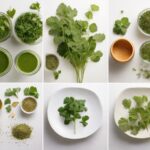
- Revealing the Superfood Potential of Red Fruits: Benefits & Recipes

- Starting Out in the Kitchen: Pro Chef Tips for Beginners

- Unlock Your Culinary Potential: Beginner’s Guide to Essential Techniques

- Culinary Secrets Unveiled: Elevate Your Cooking with Simple Ingredient Tricks

- Master Your Kitchen: 10 Unexpected Tips for Easy Cooking

- Art of Fruit and Vegetable Cutting: Expert Techniques Revealed

- Efficiency Unleashed: Explore the Art of Mise en Place

- Mastering Healthy Cooking: Unveiling 4 Low-Fat Secrets

- Complete Guide to Cooking Methods: Everything You Need to Know

- From Fusion to Tradition: 4 Global Gastronomic Trends

- Culinary Innovations: The Most Impactful Gastronomic Trends
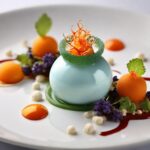
- A Gastronomic Journey: Migratory Influences in the Cuisine

- Flavors of the World: A Journey Through Diverse Culinary Influences
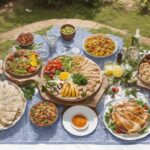
- The Evolution of Food: Traditional vs. Modern Cuisine Compared

- The Great Masters of Cuisine: Contributions to its Evolution

- Spices Through Time: Understanding Their Historical Importance

- 5 Great Gastronomic Moments: Historic Milestones in the Cuisine

